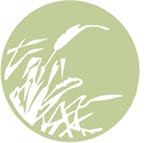Life is always presenting challenges and without the proper tools to deal with them, you can feel unprepared. So, the question is how do you develop such tools? Regarding stress, there is something called the coping-thriving continuum, which means it is not enough for people to merely cope with stress but to also find ways to thrive or flourish during duress, since stress will always be there and can never be completely turned off. Sometimes it is inevitable individuals are going to have to merely cope, but the idea is to move increasingly toward thriving since no one only wants to just “hang in there,” all the time, that’s not much fun. Thriving means you are on top of things, you are living well, creating and generating the positive stuff you seek in your life. If you feel you are living optimally, then you’re moving in a good direction; but if not, then you might agree you probably need to learn tools and skills that will help provide the ability to deal with stress better, and maybe even begin to thrive.
One great practice I want to introduce to you is what I call The Mindful Choice, influenced by a therapy called Transactional Analysis. In TA which was developed by Eric Berne in the 1970's and popularized by his best-selling book titled "Games People Play," along with another book "I'm OK, You're OK" by Timothy Harris, TA offers a simple and effective model of the mind and personality. Berne taught that we have a parent self, an adult self, and a child self. Perhaps you can get an idea by their names what these are. Interestingly, even though we are "supposed" to be mature, grown adults, we don't always act that way. Sometimes though it may be hard to admit, if you don’t get your way you might get agitated or even scream, kick, or throw things around like an impetuous child. In TA that is described as acting from your child self. On the other hand, at times you may also reprimand, judge, scold, or talk to others in a patronizing or condescending way when you don't think they are measuring up to your standards or judgments (even though you yourself may be performing the same actions as you are judging them for). And likewise at times you even may judge yourself too harshly. When you are acting those ways, you are operating from your parent self.
The optimal way to live - thriving instead of coping - is when you are acting from your adult self. It means you feel clear-minded, balanced, and are making good choices that are healthy, resourceful and wise; choices that are not only good for yourself but for the good of everybody else involved, family, friends, co-workers, and so on. In that place, you are not shutting off your emotions, nor are you overly indulging them yet are honoring, respecting, and listening to them. Marsha Linehan, who created a mindfulness based therapy called DBT, described this as “wise-mind”.
The important question is how do we act from adult self/wise-mind and stay in that mindset as much as possible? Again, it is mostly reflective of our choices. Our thoughts, feelings, and behaviors are a continual loop that create the cycle of choice. Every choice has a consequence, viewed by some as the universal law that states, “what comes around goes around.” The way we treat others and ourselves, the effort we put into something – really, whatever we focus our mind and energy on yields returns; and, what we don't spend time and energy on, does not. The pursuit of mindfulness is about developing an intuitive and critical awareness of what is important and what we need to focus our mind, energy, and resources into every single moment, this is the power of choice.
For the sake of doing this practice I will try and simplify it as much as possible. If you are operating from your inner child or your parent, call that your lower self. When you are operating from your adult self, or wise-mind, we will call that the higher self or your best self.
The following are the 5 steps of the Mindful Choice process:
Step 1 -- Identify a challenge you are facing
Step 2 -- Use mindful awareness and identify which aspect you are operating from: the higher self, or lower self (child or parent). Notice clearly what thinking and behavior patterns you are using and how the pattern(s) may be destructive in your life.
Step 3 --- Next use the centering practice, breathe, and relax into yourself. Tune into something called your observer self. The observer self is the capacity to step back and watch how you are acting and being --- it is your awareness of thoughts and feelings, your ability to notice, feel, and label emotions and the internal state you are experiencing; it is the capacity to observe your own life. Be aware of your emotions and step outside of them. See them from a distance, you might call this detaching from them, in a positive way.
Step 4 --- Now put your higher self e.g., your adult mind, in charge, and make a mindful choice, about how you will handle this challenge.
Step 5 --- What did you learn about yourself and how you handled the challenge?
Integrating this practice into your life on a regular basis will make a huge difference in the quality of your life and quality of your choices and happiness levels in general. Have fun, stay present, and enjoy the journey!
Subscribe to:
Post Comments (Atom)

No comments:
Post a Comment